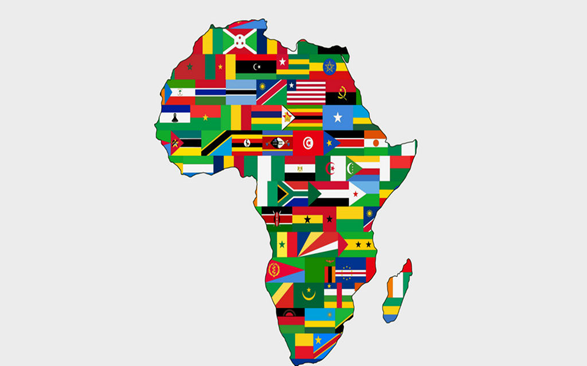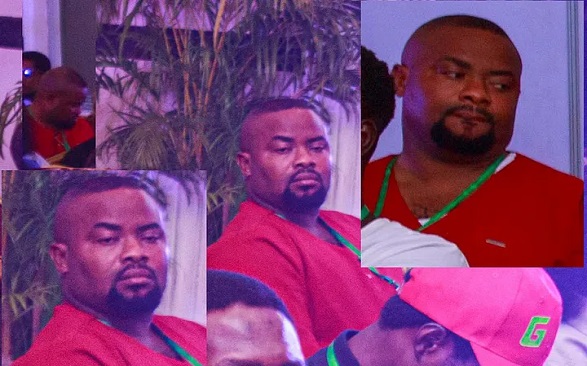Lagos, Nigeria – A recent social media post by Shadrack Egbokwu, Founder of Bitwealth Africa, has sparked a wave of responses about homegrown African/Nigerian blockchain projects tackling indigenous problems.
Egbokwu’s call to action, “Let’s know, be proud of, and support them,” resonated with his community, tending to bely the continent’s burgeoning blockchain ecosystem.
Notable projects that emerged from the conversation
- Chats.Cash: This platform’s CVA (Cash and Vouchers Assistance) solution has gained international recognition, with UNICEF’s Venture Fund acknowledging its potential. Convexity, Chats.Cash’s AI/Blockchain-powered tool, helps Donors and humanitarian organizations track and verify cash and items disbursement . UNICEF praised Convexity for its “transparency, efficiency, and security” in facilitating international aid distribution to the vulnerable
- cNGN Stablecoin: Developed by African StableCoin Consortium (ASC), cNGN aims to provide a reliable, locally-issued digital currency. ASC’s mission is to create a stablecoin pegged to the Nigerian Naira, mitigating volatility and fostering economic stability and broader capital market participation.
- Sytemap by HouseAfrica: Simplifying land transactions with metaverse and NFT technology
- Surdatics: Empowering data ownership and monetization through blockchain and AI
- Gateway App: Africa’s first web3 fighter game, featuring mythology characters
- Dixacare: Telehealth platform leveraging AI and blockchain for clinical decision support
- Kryptonig: Community-based crowdfunding platform on Solana
Of course, the African blockchain projects mentioned by Egbokwu’s community of followers above are not exhaustive. There are a number of homegrown African blockchain projects that are (also) tackling real issues faced by Africans across the continent. Certain challenges, however, bedevil the growth and success of many African blockchain startups.
The Other Part of the Coin
Not everyone appears to be optimistic about African/Nigerian blockchain projects.
From outrightly scam projects that defraud unsuspecting members of the public to failed projects that had good intentions but poor execution, the other side of the coin of homegrown blockchain projects in Africa is that a number of these projects are not solid. Poor corporate governance, lack of risk management, absence of transparency, inadequate regulatory compliance, and more often bedevil African projects. Consequently, trust and confidence are largely lacking in the African blockchain ecosystem.
While these plagues are not of course peculiar to African blockchain projects, the handwriting on the wall is that African blockchain founders have serious work to do in this regard, if achieving true and sustainable adoption is vital.
Prince Toye Theophilus Voke questioned the existence of projects truly solving indigenous problems, citing instances of token sales and Ponzi schemes.
Egbokwu also expressed skepticism about crowdfunding platforms, referencing EOS back in the early times of blockchain development and adoption. Nwokedi Uchenna Adams, founder of Kryptonig, countered this skepticism by emphasizing that minimizing exploitation in the crypto industry is key.
Other projects mentioned include Wicrypt, while Zugacoin was noted as a reputed scam and Wakanda Inu was generally adjudged a failed project which cost many losses.
Crypto use cases of blockchain technology remains the most adopted in Africa
While blockchain technology can be applied in various industries and sectors, the numbers largely tell a different story in the current nascent state of adoption: Crypto use cases of blockchain technology remain the biggest and the strongest. This is not surprising, and it is not also peculiar to Africa.
However way we look at it, cryptocurrencies, cryptoassets, or crypto tokens are digital representations of value. In many cases, this value is money. And when not money, this value is fungible, meaning that it can be converted to money. And when infungible, such as non-fungible tokens (NFTs), it is still subjectively valuable, and could make the owner of such NFT money, or any other thing of value to him or her. Therefore, crypto use cases are essentially about the monetary value, either already realized or expected to be realized in the future.
Other areas where African projects are making some appreciable strides include:
- Healthcare: Leveraging blockchain for secure medical record management.
- Agriculture: Utilizing decentralized solutions for efficient supply chain management
- Real estate: Applying tokenization to real-world estates such as houses and lands to enable easier access and liquidity
Admittedly, some of these homegrown innovations demonstrate Africa’s potential for self-sustaining, blockchain-driven growth. Interestingly, whether the use case is healthcare, agriculture, or real estate, there is almost always that vital element of financial inclusion, particularly enabling access to financial services for mostly underserved communities.
As Egbokwu emphasized, “It’s time to celebrate and support our own success stories.”
What are your thoughts? Share your favorite African crypto projects tackling local challenges with Man Around Town. By the way, if you are an African blockchain project and would love to be specially featured by CAB, Blockchain Beyond Buzz is your plug. Write to editorial@cryptoassetbuyer.com, introducing your project and team to us.
Disclaimer: The African blockchain projects mentioned above are strictly referred to for news purposes only, and not endorsed by CAB whatsoever. Conduct your own research.
Discover more from Crypto Asset Buyer
Subscribe to get the latest posts sent to your email.





